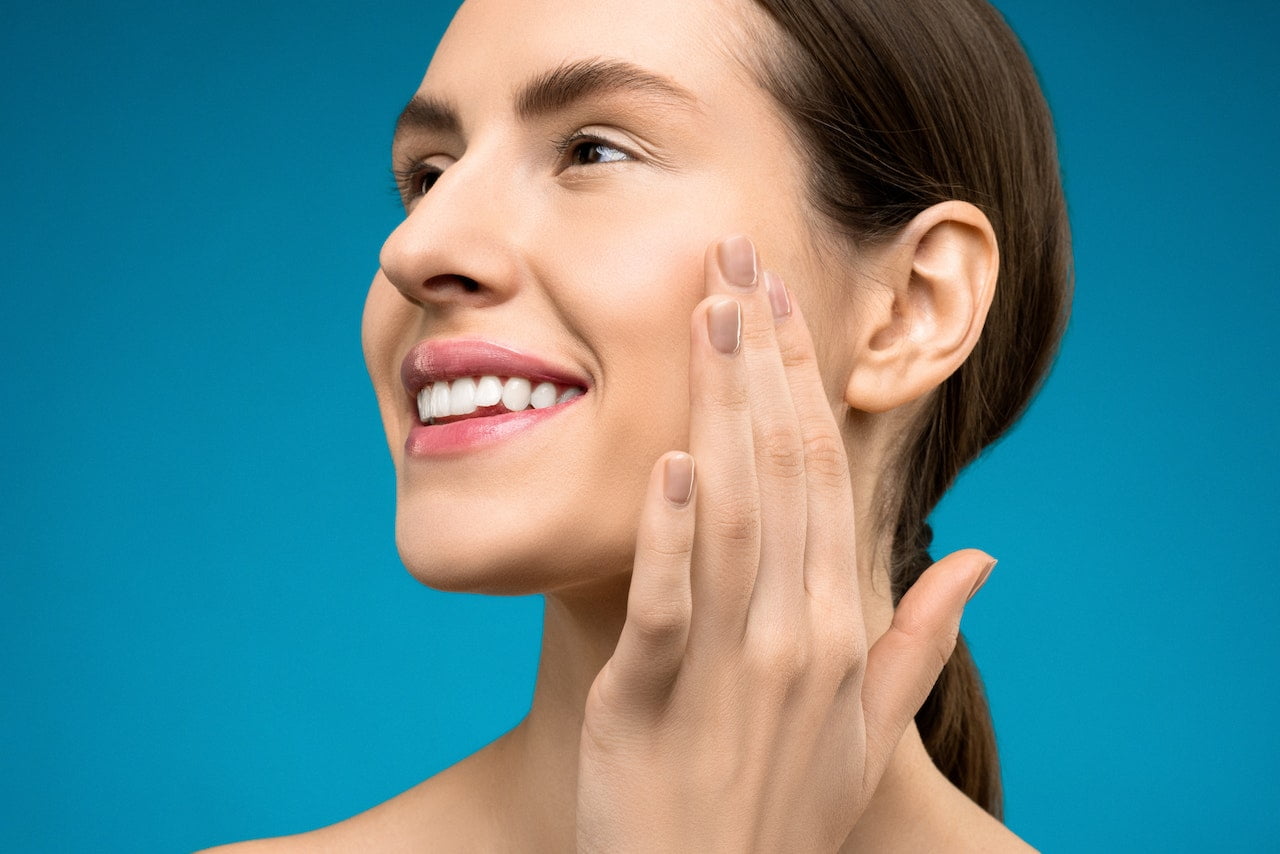Achieving glowing skin doesn’t require expensive treatments or miracle products. It’s all about consistency and adopting healthy skincare habits. Whether you’re a skincare newbie or a seasoned enthusiast, these 10 daily habits will help you achieve radiant, healthy skin. Let’s dive in!
1. Cleanse Your Skin Twice a Day
Cleansing is the foundation of any skincare routine. It removes dirt, oil, and impurities that accumulate on your skin throughout the day and night. In the morning, use a gentle cleanser to refresh your skin and prepare it for the day. At night, double cleanse to remove makeup, sunscreen, and pollutants. Start with an oil-based cleanser, followed by a water-based one. Avoid harsh cleansers that strip your skin of natural oils. Look for ingredients like hyaluronic acid or glycerin for hydration.
Cleansing is especially important if you live in a polluted area or wear makeup regularly. Pollution particles can clog pores and lead to breakouts, while leftover makeup can cause irritation and dullness. A good cleanser will leave your skin feeling clean but not tight or dry. If you have sensitive skin, opt for fragrance-free and hypoallergenic formulas.
2. Exfoliate Regularly (But Not Too Much)
Exfoliation removes dead skin cells, unclogs pores, and promotes cell turnover. However, over-exfoliating can damage your skin barrier. Use chemical exfoliants like AHAs (glycolic acid) or BHAs (salicylic acid) 2-3 times a week. If you prefer physical exfoliants, opt for gentle scrubs with fine particles. Always follow up with a moisturizer to soothe your skin after exfoliation.
Chemical exfoliants are often more effective and less abrasive than physical scrubs. AHAs work on the skin’s surface to brighten and smooth, while BHAs penetrate deeper to unclog pores and reduce acne. If you’re new to exfoliation, start with a low concentration and gradually increase as your skin builds tolerance. Over-exfoliation can lead to redness, irritation, and even breakouts, so listen to your skin and adjust accordingly.
3. Hydrate, Hydrate, Hydrate
Hydration is key to plump, glowing skin. Drink at least 8 glasses of water a day to keep your skin hydrated from within. Use a hydrating serum with hyaluronic acid, which attracts and retains moisture. Finish with a moisturizer suited to your skin type—lightweight for oily skin and rich for dry skin.
Hydration isn’t just about drinking water; it’s also about locking in moisture with the right products. Hyaluronic acid is a superstar ingredient that can hold up to 1,000 times its weight in water, making it perfect for plumping and smoothing the skin. Pair it with a good moisturizer to create a barrier that prevents water loss. If you have oily skin, don’t skip moisturizer—opt for a gel-based formula that hydrates without clogging pores.
4. Never Skip Sunscreen
Sunscreen is your best defense against premature aging, dark spots, and skin cancer. Apply an SPF 30 or higher every morning, even on cloudy days. Reapply every 2 hours if you’re outdoors. Choose a broad-spectrum sunscreen that protects against UVA and UVB rays.
Many people underestimate the importance of sunscreen, but it’s the single most effective way to prevent wrinkles, sunspots, and sagging skin. UVA rays penetrate deep into the skin and cause aging, while UVB rays burn the surface. Look for sunscreens with added antioxidants like vitamin C or E for extra protection against free radicals. If you have oily or acne-prone skin, choose a lightweight, non-comedogenic formula that won’t clog pores.
5. Eat a Skin-Friendly Diet
Your diet directly impacts your skin’s health. Incorporate antioxidant-rich foods like berries, spinach, and nuts to fight free radicals. Include healthy fats from avocados, salmon, and olive oil to keep your skin supple. Avoid excess sugar, which can lead to breakouts and dull skin.
What you eat shows on your skin. Foods high in sugar and refined carbs can spike insulin levels, leading to inflammation and breakouts. On the other hand, foods rich in omega-3 fatty acids, like salmon and walnuts, help maintain your skin’s lipid barrier, keeping it hydrated and smooth. Don’t forget vitamins and minerals—zinc, vitamin E, and vitamin C are essential for healthy skin.
6. Get Enough Sleep
Sleep is when your skin repairs itself. Aim for 7-9 hours of quality sleep every night. Use silk pillowcases to reduce friction and prevent wrinkles. Apply a night cream or sleeping mask to boost overnight hydration.
During sleep, your body produces collagen, which keeps your skin firm and elastic. Lack of sleep can lead to dark circles, puffiness, and a dull complexion. Silk pillowcases are gentler on your skin and hair, reducing the risk of sleep lines and breakage. Night creams and sleeping masks are formulated to work while you sleep, delivering active ingredients like retinol or peptides to repair and rejuvenate your skin.
7. Use Vitamin C in Your Routine
Vitamin C is a powerhouse ingredient for brightening and protecting your skin. It reduces dark spots, boosts collagen, and fights free radicals. Apply it in the morning before sunscreen for maximum protection.
Vitamin C serums are a must-have for anyone looking to achieve glowing skin. They work by inhibiting melanin production, which helps fade dark spots and even out skin tone. Vitamin C also enhances the effectiveness of sunscreen, providing an extra layer of protection against UV damage. Look for serums with a concentration of 10-20% for optimal results.
8. Avoid Touching Your Face
Your hands carry bacteria and oils that can clog pores and cause breakouts. Wash your hands regularly and use clean tools like brushes, sponges, and towels.
It’s easy to forget how often we touch our faces throughout the day, but this habit can introduce dirt and bacteria to your skin. If you’re prone to breakouts, try to keep your hands away from your face as much as possible. Clean your makeup brushes and sponges weekly to prevent the buildup of bacteria and product residue.
9. Manage Stress
Stress can trigger acne, eczema, and other skin issues. Practice self-care through yoga, meditation, or a relaxing bath. Turn your skincare routine into a calming ritual to reduce stress.
When you’re stressed, your body produces cortisol, a hormone that can increase oil production and lead to breakouts. Chronic stress can also weaken your skin’s barrier, making it more susceptible to irritation and dehydration. Taking time for yourself—whether it’s through exercise, meditation, or a skincare routine—can help lower stress levels and improve your skin’s health.
10. Be Consistent
Consistency is the secret to glowing skin. Stick to your routine and give products time to work. Most skincare products take 4-6 weeks to show results. Track your progress by taking photos to monitor changes in your skin.
Skincare is a long-term commitment. It’s tempting to switch products frequently, but this can disrupt your skin’s balance and delay results. Give each product at least a month to work before deciding if it’s right for you. Keep a skincare journal or take photos to track your progress and identify what works best for your skin.
Conclusion
Glowing skin is achievable with the right habits and a little patience. By following these 10 daily skincare tips, you’ll be well on your way to healthier, more radiant skin. Remember, skincare is self-care—so take the time to pamper yourself and enjoy the process!
For more tips and tricks, subscribe to Universo Íntimo and follow us on social media. Let’s glow together!

